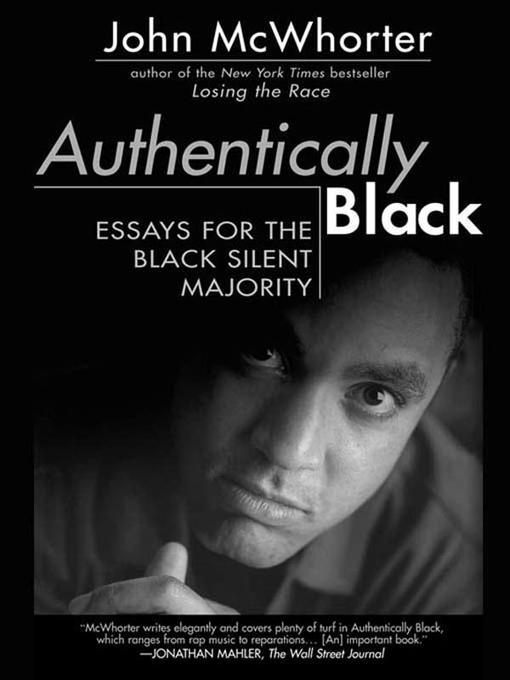
Authentically Black
Essays for the Black Silent Majority
کتاب های مرتبط
- اطلاعات
- نقد و بررسی
- دیدگاه کاربران
نقد و بررسی

November 11, 2002
Much like the famed white silent majority conjured into existence a couple of decades back, this book's imagined audience is a middle class satisfied with its own achievements and wishing to separate itself from obstreperous complainers with more strident voices. Rejecting slavery reparations and affirmative action, the book repeatedly criticizes liberal commentators for badly fishing the data stream, while relying itself on torrents of anecdotal evidence. McWhorter, linguist–turned–social critic, may share Noam Chomsky's academic background but not his agenda: this book is starkly conservative and likely to please the anyone-can-make-it-if-they-want crowd of all colors. Empowering? Perhaps, if power's already your thing.

February 15, 2003
America's race dilemma demands urgent attention, insists McWhorter (linguistics, Berkeley) in nine pieces collected from his recent writings as something of a sequel to his 2000 sensation, Losing the Race: Self-Sabotage in Black America. Collectively and individually, the nation in general and blacks in particular need to move beyond race, he argues, Racism is not the reason for the current situation of blacks in contemporary America, and the common consensus to the contrary is worse than fundamentally wrong. For African Americans, it is self-defeating as it enshrines victimhood. At most, racism today is residual and response to it reflexive, and America must slip from an outmoded ideological straitjacket to a forward frame of reference and a fresh guiding paradigm that McWhorter labels "deracialized." Most of his attention falls not on what he projects but on what he rejects-from affirmative action to racial preferences in higher education to reparations to false black leaders such as the Reverends Jesse Jackson and Al Sharpton. No less controversial than his original challenge, McWhorter's siren call for dynamic self and societal transformation may sound shrill, simple, or silly, but it deserves to be heard. For collections on the contemporary United States, race, or African Americans.-Thomas J. Davis, Arizona State Univ., Tempe
Copyright 2003 Library Journal, LLC Used with permission.

February 15, 2003
McWhorter, a linguistics professor, ventures again into his sideline as a black public intellectual as he did in his earlier work, " Losing the Race: Self-Sabotage in Black America" (2000), this time examining the direction--or misdirection--of black leadership in America. His working assumption is that black leaders--wedded to the political left, the Democratic Party, and affirmative action--are out of step with the times. He argues that the civil rights era is dead, and appropriately so. The new battleground against racism requires individual rather than collective action. McWhorter criticizes the icons and issues of black leadership from Randall Robinson on reparations, to Jesse Jackson's shakedown of lucrative deals for his friends, to Al Sharpton for perpetuating notions of victimhood. McWhorter's criticism of this old vanguard of the civil rights movement is formulaic in the mode of the Republican right wing. However, his real contribution to the debate regarding new directions for racial progressiveness is his emphasis on the positives of black endurance and progress. Despite its partisan slant, this is a worthy book.(Reprinted with permission of Booklist, copyright 2003, American Library Association.)

























دیدگاه کاربران